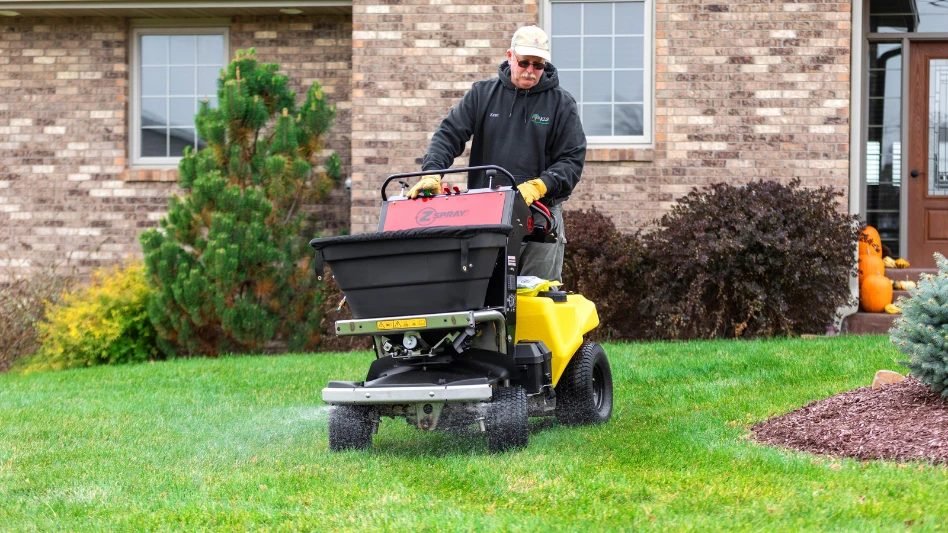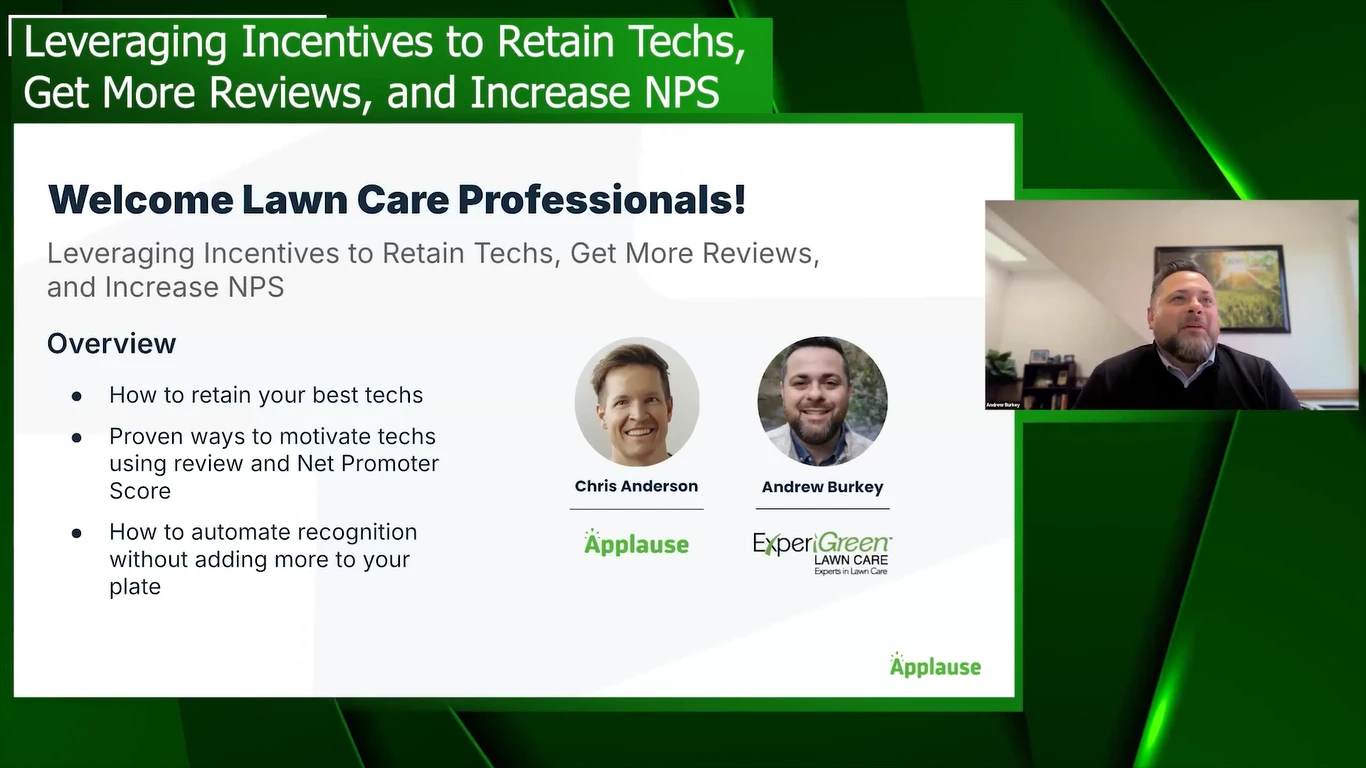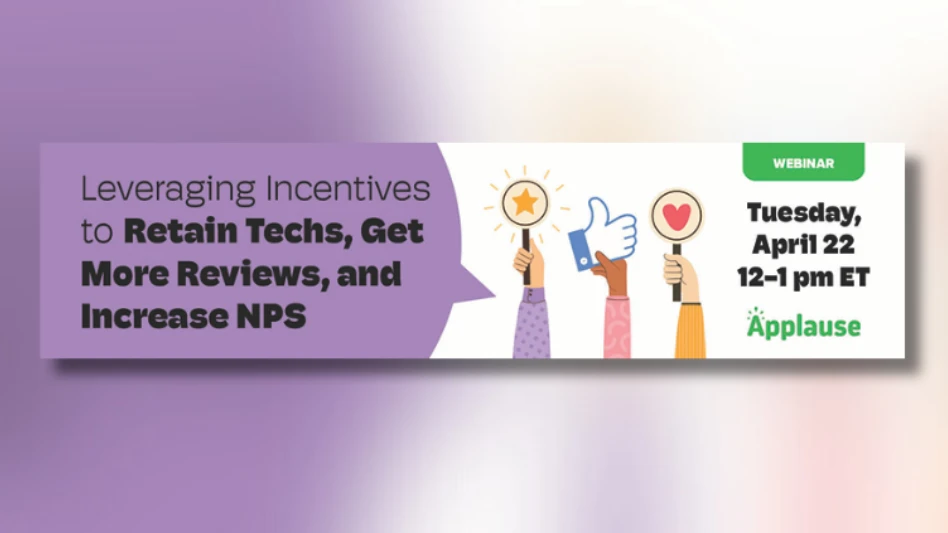

It took Jon Hardecopf a week or two before he heard about an employee deciding to rebuild an entire fireplace that was constructed a few inches off-kilter.
But that’s not a problem at Metro Greenscape — that’s actually just the way Hardecopf wants his employees to operate. The decision to redo the fireplace cost the company thousands, but in the end, it was the right decision in keeping the client happy. He trusts his employees to make the proper judgment calls without needing to constantly check in.
“I lead with the sense of empowering our employees,” he says, adding that most decisions the team makes daily are wins for the company, not losses. “They need to own their decisions…but this empowerment allows them to care a lot about us as a company.”
Hardecopf is approaching his third year as the Metro Greenscape owner, overseeing 54 employees and a projected $15 million in revenue by the end of this season. They’ve grown rapidly since he bought the company in June 2020, even amidst the global pandemic. And though that process has certainly come with growing pains, Hardecopf insists on not micromanaging.
The company didn’t rewrite its core values when Hardecopf came into the fold, but he says they now talk about those core values on a regular basis, going so far as to say “we hire and fire” on them. One of the six core values — also placed prominently on the company’s website – reads, “ownership through empowerment.”
“I think we hire really good people and we get out of their way,” says Todd Cioppa, the team’s chief operations manager. “We allow staff to have the freedom in their day to do certain things, whether it be a personal errand or a kid’s ballgame in the afternoon or if someone needs a work-from-home day.
“We try to accommodate as much as possible,” Cioppa says. “We’re not an attendance-based company. We’re a results-based company.”
Humble beginnings
Cioppa has been in the green industry since 1994, and he’s been with Metro Greenscape for roughly seven years. That means he was around when Hardecopf purchased the company in the summer of 2020. He was excited for a new start, even if it came with some nerves.
Hardecopf, for his part, certainly had some reservations. He was buying a company amidst the early goings of a global pandemic. He cites his faith as a reason he stayed the course, feeling like God had kept opening doors to keep with the decision to buy. It’s a decision that panned out.
“I’m one who lets God lead me down the path, but I went into it frankly a little nervous, honestly,” he says. “But we’ve grown the company, by the end of this year, three times the size from when I bought it.”
Hardecopf says the company has always identified as a faith-based company, but he also tried immediately implementing more ways to put it into action. Within the four walls of the company, they’ll often say team prayers, and once a month, Hardecopf brings in a chaplain who has some conversations with the employees. They send out a weekly devotional to the entire staff, too.
Hardecopf says some companies will say they’re faith-based to increase profitability, but at Metro Greenscape, he truly believes they’re living it out. They budget annually for giving opportunities like charities or even projects, including recent work on a backyard space for a family who has a child with cancer who can’t leave home often.
“That’s probably the biggest challenge when you run a faith-based organization is have it be more than just words on a wall,” Hardecopf says. “It’s truly about how God wants us to lead – he wants us to lead humbly, and he wants our organization to lead with caring and serving others at the core.”
Cioppa noticed these traits right away when Hardecopf started, he says. Cioppa found himself immediately struck by Hardecopf’s humility. He could tell from early interactions that the company would be in the hands of someone who’d lead with the whole team in mind.
“I’ve watched some owners drain companies for cars and houses, and (Hardecopf is) treating the business like it’s a future asset and not something he wants to pillage from any chance he can get,” Cioppa says. “He wants what’s best for the company, not just him.”
Building the team
From the onset, Hardecopf wanted to put his employees in the right spots before handing them the keys to freely make business decisions. He spent several months early on at Metro Greenscape familiarizing himself with each of his employees’ capabilities. He found some people were underutilized; he found some weren’t great cultural fits. He defined the core values to the team and explained how he expected each individual to live out those values.
What ensued were some significant role changes for employees at the company. Some design workers moved to sales, and now they’re flourishing. Some receptionists who were used to fielding phone calls started making calls of their own to clients. It didn’t come without challenges, but Cioppa says most of those were logistical.
Assimilating some data from one segment of the company to another proved tricky. They had to create new positions and hire for them to accommodate their changing infrastructure, including roles Cioppa would’ve never imagined needing two years ago. Getting new trucks and equipment for this period of growth and change was difficult, too, given the state of the supply chain.
But Cioppa found the changes largely landed gently, which was a huge sigh of relief. “Usually,” he says, “that type of growth comes with a lot of stress on the organization.”
Extra, extra
As the pandemic progressed, more people who were stuck at home wanted to see their backyards beautified. With such a boom in business, Metro Greenscape needed to attract the right employees but quickly.
The employee compensation is relatively high, Hardecopf says, but what sets the team apart from other green industry companies is the comprehensive bonuses plan. This gets employees to really invest in the company, he says, buying in to making operations as profitable and as efficient as they can be.
On a monthly basis, the team comes up with ideal profit margins they aspire to hit for that time period. For their part, employees receive bonuses of 10, 15 or even 20% of what they typically earn if they go above and beyond the monthly goals.
Of course, that also factors into what decisions employees might make while out in the field or at the office. The sales team is quoting jobs to either be profitable or not, and the employees in the field are making judgment calls that could affect the ultimate profitability of the job. There may even be jobs that come in under margin, Hardecopf says, but that’s okay if they’re taking care of a client.
“They’re making decisions that could potentially cost the company money or not cost the company money,” he says.
But the company has its employees’ backs all the way, willing to even spend money to help each individual achieve personal goals beyond the business. Cioppa says if someone wants a certain licensure, they’ll often foot the bill. If an employee wants to learn a skillset in a different segment of the business, they’ll take out the time to teach them.
“Metro Greenscape is what you make of it,” Cioppa says. “Nobody here is going to stifle your growth.”

Explore the June 2022 Issue
Check out more from this issue and find your next story to read.
Latest from Lawn & Landscape
- PERC helps debut propane direct-injection fuel system at ACT Expo 2025
- Retargeting Ads – A Secret Weapon for Growing Your Lawn Care Business
- Leading a growing company
- Project EverGreen launches Clean Air Calculator
- Rain Bird acquires smart lawn care company OtO from Toronto
- PBI-Gordon names Marvin as VP of research and development
- Mean Green rolls out Vanquish Autonomous mower
- Focal Pointe launches new podcast series





